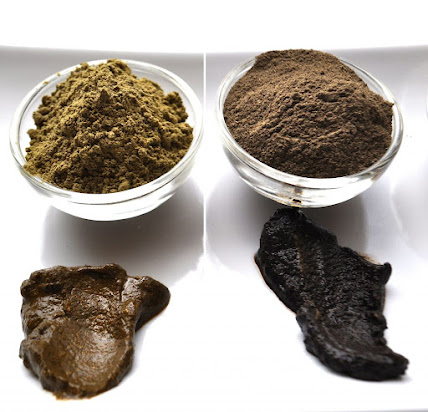Is Henna safe to dye hair?
Henna is a beautiful word. It has amazing herbal properties that will increase your hair's growth and sharpness, just like its wonderful name. You can also choose to use henna with chemicals that damage your hair's core instead of natural henna.
Henna can also protect hair from sun damage. Henna has been commercially successful as a hair conditioner and nourishes hair. Studies have shown that Henna is better than any other conditioner. Regular use improves hair texture and shine.
Henna can be used as a natural dye for hair. Some might still wonder if henna is good for hair. Is henna a safe hair color option?
Many myths claim that henna is bad for hair. They don't specify which kind of henna. Let's get to the bottom of this.
Yes, Henna can be used for hair. However, you must ensure that it is 100% natural. Even the smallest amount of Henna can cause hair damage and hair loss. Learn how to distinguish between pure henna and henna with chemicals added.
P.S. P.S. - Before using henna hair dye, it is strongly advised to conduct a strand allergy test. Although henna is a natural dye made from herbs, it is possible that you won't like it in some cases.
Natural henna has no chemical ingredients and provides many benefits for hair. It is also completely organic and doesn't cause any harm to hair. These benefits are provided by Natural Henna Powder Supplier in India.
1 Natural henna accelerates hair growth.
Henna hair colors naturally strengthen hair and make it healthier. Henna prevents hair from falling, breaking or thinning. Henna can cause hair loss if used for the first time. It cuts off the damaged hair. However, it will promote hair growth if you use it regularly. If your hair falls even though you use henna frequently, consult a doctor. You might have hair fall issues.
2) Henna gives multiple shades.
Henna can be used by itself to give your hair a reddish-orange color. Henna can be used in combination with Indigo to create shades such as dark brown or black. Natural colors are not able to produce vibrant colors like bright orange, light green, and blue.
3 Henna moisturizes the scalp.
Henna's naturally soothing properties make it a great ingredient for softening dry and damaged hair. Henna is naturally antifungal, and antimicrobial and can soothe and cool your scalp while also controlling scalp itching. Henna penetrates deep into the hair's roots and delivers all the nutrition to the hair.
4) Henna prevents split ends.
Hair can become dry and damaged by using cosmetics that contain high levels of chemicals, such as ammonia or PPD. Split ends are more common in dry hair. This is why simply cutting them off is not enough. Split ends can be broken by using henna.
5) Henna can be used to balance pH and oil nourishment.
Henna is rich in nourishing ingredients that penetrate deeply into the scalp and enrich it with nutrients. Henna is a natural remedy for overactive sebaceous cells and helps to control oil production. It helps to maintain the pH level of the hair, which is naturally acid-alkaline. This strengthens the hair follicles. You can also check for Black Henna Hair Dye Suppliers in India Black henna also looks good for the Indian skin tone.
Let's now see why henna can be bad for hair.
The henna that's bad for hair is actually the Black Henna. Also known as "Kali Mehndi", or henna with added chemicals, even in small amounts. Black henna, which is often called Black
"Henna" for marketing purposes, is actually not henna. It is a mix of henna and toxic chemicals. Most people believe that black henna is pure henna. However, they don't know the truth so they buy it and damage their hair.
Black henna has a very toxic chemical in it called PPD (paraphenylenediamine), a chemical that is also present in most hair dyes that you buy or get in the salon. It can make hair dyes last longer and cause darker hair colors. It transforms the natural red color into a black stain when it is mixed with henna. Black henna can be applied to the hair in the same way as chemical-based hair dyes. If you think you are using natural dye but are using black henna, it is probably not.
Always check before you buy it. It is not natural henna if it claims to permanently dye your hair.
Black Henna's chemical PPD can cause severe reactions to hair and scalp, including blisters, burns, scarring, and other serious effects. It is prohibited in the USA, but it is not banned in hair dyes.
It is also believed that henna can cause hair fall. It is the black henna with its chemicals that can cause hair damage and break.
Avoid anything containing PPD, including any chemical hair dyes that may contain it. Henna can be used in its natural state. Henna can be used in its natural form to condition, heal, and nourish hair. It forms a protective layer that protects the hair strands and makes them shiny and full of life. You can get serious allergies to chemical dyes, which are worse for hair and skin. Check to make sure they are pure and natural. Choose natural dyes with only the best ingredients for good hair health.
Are you looking to import premium Pure Natural Henna Powder? Contact us for more information.
Contact us
+91-9910415530
online@nmpudhyog.com


Comments
Post a Comment